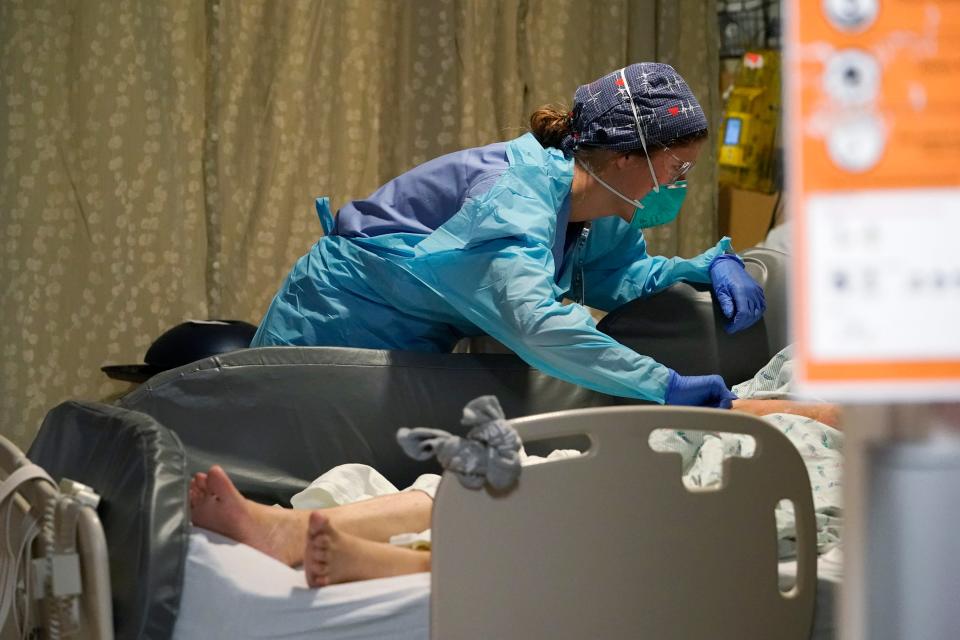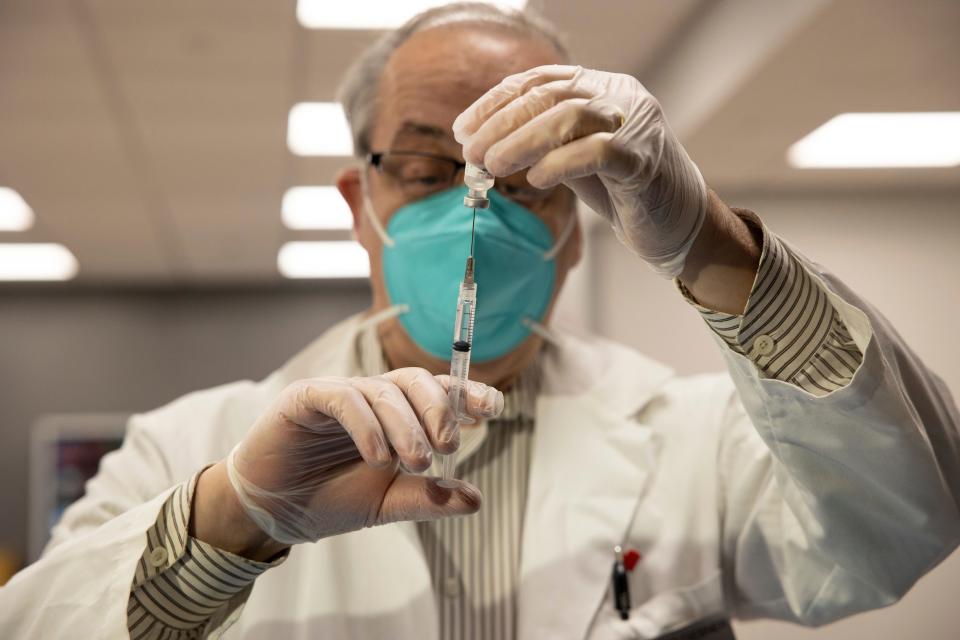Isolating from a world filled with omicron makes less and less sense
An increasing number of my patients have found their way through the hysteria to look to the real science and the real public health consequences of the omicron variant.
What those patients have learned is that this highly contagious variant is much milder and much less damaging to the lungs than delta, according to Centers for Disease Control and Prevention and multiple studies from South Africa and the United Kingdom.
Omicron is much less likely to put you in the hospital, especially if you recently had COVID-19 or are vaccinated and boosted. In fact, it is unlikely to make you very sick if you are young and lack chronic health conditions.
Yet, as a society we continue to reel from one alarm to another, caught in a chronic web of hysteria and fear. We are obsessed with (and are told to be obsessed with by government on all levels) exposure and the possibility that we could be asymptomatic carriers.
This is the COVID-19 stigma, which is finally being lessened by the sheer number of cases as someone in almost every family I know now has it. Isolating from a world that is already filled with omicron makes less and less sense.
Focus on tools that are truly effective
Although isolation and quarantine for a highly contagious disease are part of my arsenal as a practicing internist, my general advice to my patients remains: If you feel sick, stay home. If you are well, go to work or school. This advice applies increasingly well to the omicron variant.
More Opinion: Get a roundup of our best columns every day in your inbox.

What matters more than dictums are results I can act on. That is the exact opposite of Sen. Bernie Sanders' attempt to legislate via grandstanding by sending an N95 mask to every person in America. Such masks are only effective if used properly. It's the type of mask I use in my practice after elaborate fit testing. And it's a mask that creases your face, is difficult to wear and has to be frequently replaced.
I believe instead in tools that are effective in the real world, and this effectiveness decreases rather than increases fear. Rapid home testing, for example, could be useful not only to identify people for a brief period of infectious isolation, but also because knowing you have COVID-19 could lead me to intervene early, especially if you are at risk of a bad outcome.
Tools such as monoclonal antibodies and now Pfizer’s Paxlovid and Merck’s Molnupiravir should be more widely available. If I had them, I could rush you to an infusion center for GSK’s Sotrovimab, the monoclonal antibody with the most activity against the omicron variant.
Dr. Marc Siegel: America has gone from Operation Warp Speed to Biden's Snail Speed on COVID tests
Except I lack access to these tools thanks to the Biden administration’s "operation snail speed."
Long COVID-19 is enough of a reason to hope that no one catches even a mild to moderate case, but I lack the ability to rapidly diagnose and then treat you despite the technology that exists.
Quelling the hysteria
Michael Mina, formerly at Harvard University and now at EMed, is an expert in rapid antigen testing. He told me on SiriusXM’s "Doctor Radio" that he envisions a near future where you can rapidly diagnose your COVID-19 at home and use an online app to garner a prescription for Paxlovid or another drug that ameliorates your symptoms the way Tamiflu does for flu.
And I envision a time when the politics of fear is replaced by community compliance rather than ridicule.
COVID test: Can Americans get our act together to build a better country for our children?

The one tool I do have in abundance now is the vaccine, which, although much less effective at preventing COVID-19 with omicron, is still highly effective at keeping you out of the hospital if you're boosted.
One additional benefit of the vaccine is that it appears to markedly decrease your risk of acquiring symptoms of long COVID-19, including persistent headache, fatigue, weakness and muscle pain.
In fact, a study completed in Israel found that those who had received at least two doses of the vaccine and then got COVID did not develop these symptoms any more frequently than those who had never had COVID.
And a study just published in Nature found that the risks of developing persistent neurological symptoms after COVID-19, including headache, cognitive problems and memory loss, are significant. The vaccine is still our best tool to prevent these problems from occurring in the first place.
This is not a pandemic of the unvaccinated. It is a pandemic of a virus that causes a lot of inflammation, combined with the massive inflammation of fear.
Dr. Marc Siegel, a member of USA TODAY's Board of Contributors and a Fox News medical correspondent, is a professor of medicine and medical director of Doctor Radio at NYU Langone Health. His latest book, "COVID: the Politics of Fear and the Power of Science," was published last fall. Follow him on Twitter: @DrMarcSiegel
You can read diverse opinions from our Board of Contributors and other writers on the Opinion front page, on Twitter @usatodayopinion and in our daily Opinion newsletter. To respond to a column, submit a comment to letters@usatoday.com.
This article originally appeared on USA TODAY: Enough with COVID hysteria. Time for a commonsense look at omicron

